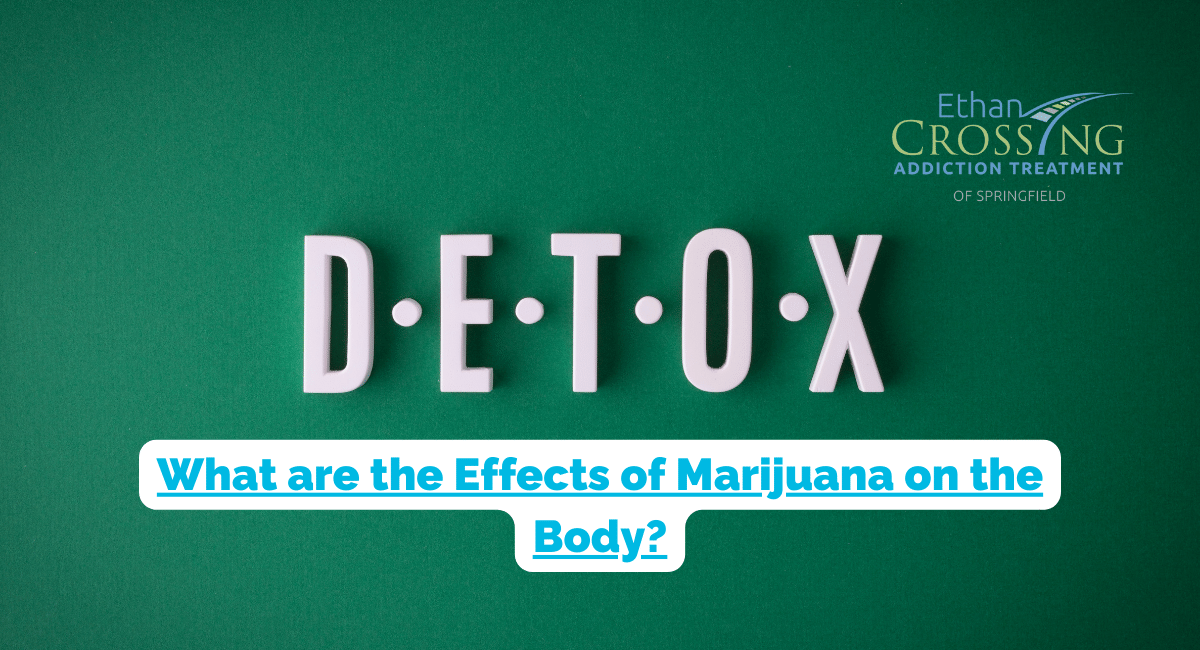Embarking on a journey to cleanse your body from marijuana, commonly known as weed, can be a significant and personal decision. Whether you’re looking to reset your system, address personal goals, or comply with certain obligations, understanding the process of marijuana detox is essential.
You’re not alone in this endeavor—many individuals navigate this path with a desire to embrace a healthier lifestyle. According to data from the National Institute on Drug Abuse (NIDA), marijuana is the most commonly utilized illegal drug in the United States. In fact, marijuana usage rates have surged in recent years, with a significant increase observed among individuals aged 12 and older.
NIDA reports that the prevalence of marijuana use in this age group has risen from 11% to 17.5%. It is clear that marijuana holds a prominent presence in our society, making it all the more important to understand the process of marijuana detox and provide support for those seeking to cleanse their bodies from this commonly used substance.
Table of Contents
What is Marijuana Detox?
Marijuana detox, also known as cannabis detoxification, refers to the process of eliminating marijuana or its byproducts from the body. This process is typically undertaken by individuals who want to abstain from marijuana use or need to pass a drug test.
When marijuana is consumed, its active compound, delta-9-tetrahydrocannabinol (THC), is metabolized and stored in the body’s fat cells. THC and its metabolites can be detected in various bodily fluids, such as urine, blood, and saliva, for varying lengths of time depending on factors such as frequency of use, dosage, and individual metabolism.
Marijuana detox aims to accelerate the elimination of THC and its metabolites from the body, reducing the duration of detection. While the body naturally detoxifies itself over time, the process can be expedited through several strategies, including abstinence, hydration, exercise, diet, and sauna.
What are the Effects of Marijuana on the Body?
Marijuana, also known as cannabis, can have various effects on the body due to its active compounds, primarily delta-9-tetrahydrocannabinol (THC) and cannabidiol (CBD). Here are some of the effects of marijuana on the body:
- Central Nervous System: When marijuana is consumed, THC interacts with cannabinoid receptors in the brain, leading to various effects on the central nervous system. These effects can include euphoria, relaxation, altered perception of time, and changes in sensory perception. THC is also responsible for the psychoactive properties of marijuana.
- Cognitive Function: Marijuana use can affect cognitive functions such as memory, attention, and decision-making. Short-term memory impairment is a common effect, making it difficult to recall recent events or information. Heavy and prolonged marijuana use, especially in adolescence, may have a more significant impact on cognitive development.
- Respiratory System: Smoking marijuana, whether in the form of joints or using devices like pipes or bongs, can have similar respiratory effects as smoking tobacco. It can lead to chronic bronchitis-like symptoms, coughing, and increased phlegm production. Long-term smoking of marijuana can also potentially increase the risk of respiratory infections and respiratory conditions.
- Cardiovascular System: Marijuana use can cause an increase in heart rate and blood pressure shortly after consumption. These effects are generally mild and transient, but individuals with pre-existing cardiovascular conditions may be at higher risk of experiencing adverse cardiovascular effects.
- Immune System: The impact of marijuana on the immune system is still not fully understood. Some studies suggest that certain components of marijuana, such as CBD, may have anti-inflammatory properties and could potentially modulate immune responses. However, more research is needed to fully understand the effects of marijuana on the immune system.
- Gastrointestinal System: Marijuana use can stimulate appetite, often referred to as the “munchies.” It can increase food cravings and lead to overeating. This effect can be beneficial for individuals with conditions that cause a loss of appetite, such as cancer or HIV/AIDS, but it can also contribute to weight gain and other associated health issues.
These effects can vary depending on the specific strains, THC and CBD concentrations, method of consumption, individual tolerance, and other factors. Also, some people may experience adverse reactions or heightened sensitivity to its effects.
How do Marijuana Detox Remedies Work?
There are various marijuana detox remedies available, but it’s important to note that their effectiveness may vary, and some claims made by certain products or methods may not be supported by scientific evidence. That being said, here are some common types of marijuana detox remedies and how they are purported to work:
1. Detox drinks
These are beverages formulated with ingredients believed to help eliminate THC and its metabolites from the body. The specific ingredients can vary, but they often include diuretics to increase urine production, as well as vitamins and minerals to mask the dilution of urine and replenish nutrients. The effectiveness of detox drinks is debated, and they may not guarantee reliable results for passing drug tests.
2. Detox kits
These kits typically consist of a combination of supplements, teas, and dietary guidelines aimed at supporting the body’s natural detoxification processes. They may contain herbal ingredients or vitamins and minerals believed to enhance liver function, promote urine production, or accelerate metabolism. However, scientific evidence supporting the effectiveness of these kits for marijuana detox is limited.
3. Time and abstinence
The most reliable and natural method of marijuana detox is allowing your body time to naturally eliminate THC and its metabolites. By abstaining from marijuana use and maintaining a healthy lifestyle with adequate hydration, exercise, and nutrition, the body’s natural detoxification processes can gradually clear THC from the system.
It’s important to approach marijuana detox remedies with caution. Additionally, the effectiveness of these remedies may vary depending on individual factors such as frequency of use, dosage, and metabolism.
What Withdrawal Symptoms are Expected During Marijuana Detox?
When marijuana addicts stop or significantly reduce their use, they may experience certain withdrawal symptoms as their body adjusts to the absence of the drug. While marijuana withdrawal symptoms are generally considered less severe compared to substances like opioids or alcohol, they can still be uncomfortable for some individuals.
Not everyone will experience withdrawal symptoms, and the severity and duration can vary from person to person. Some common withdrawal symptoms associated with marijuana detox include:
- Irritability
- Insomnia
- Anxiety
- Depression
- Decreased appetite
- Physical discomfort
It’s important to remember that marijuana withdrawal symptoms are generally short-lived and tend to subside within a week or two. However, in some cases, certain symptoms may persist for a longer duration.
How Long Does It Take to Detox From Weed?
The time it takes to detox from weed or to eliminate THC (the main psychoactive compound in marijuana) and its metabolites from the body, can vary depending on several factors. For occasional users who use marijuana infrequently or sporadically, THC can typically be cleared from the body within a few days to a week.
Regular users may take longer to detox, with THC detection in urine possible for up to 30 days after last use. Chronic or heavy users (marijuana addicts) may experience a more prolonged detoxification period, with THC and its metabolites potentially detectable in urine for up to 60 days or longer.
While the body naturally detoxifies itself over time, there is no guaranteed method to immediately flush THC from the system. Some products or remedies claim to speed up the detox process, but their effectiveness may vary, and scientific evidence supporting their claims is often limited.
Is Detox From Marijuana Dangerous?
Detox from marijuana is generally considered safe and not life-threatening. However, some individuals may experience certain discomforts or challenges during the detoxification process. These symptoms are generally short-lived and tend to subside within a week or two as the body adjusts to the absence of marijuana.
It’s important to note that individuals with pre-existing medical or mental health conditions may be more susceptible to experiencing difficulties during detox. For example, individuals with underlying mood or anxiety disorders may find that their symptoms temporarily worsen during the detoxification process.
It’s also worth mentioning that abruptly stopping the use of marijuana, especially for individuals who have been heavy or chronic users, may lead to a temporary rebound effect. This can manifest as an increase in symptoms that the individual was using marijuana to manage, such as insomnia or anxiety.
Conclusively, marijuana detox refers to the process of eliminating THC and its metabolites from the body after prolonged or heavy marijuana use. While marijuana withdrawal symptoms are generally milder compared to other substances, individuals may experience temporary discomforts such as irritability, insomnia, anxiety, and changes in appetite.
Detoxification timelines can vary depending on factors such as usage patterns, metabolism, and overall health. It’s important to note that detox from marijuana is typically considered safe and not life-threatening. However, individuals with pre-existing medical or mental health conditions should seek medical guidance to ensure a safe and supported detoxification process.
Gradually tapering off marijuana use and making lifestyle adjustments may be recommended in certain cases. Ultimately, consulting with a healthcare professional can provide personalized guidance and support for individuals seeking to cleanse from weed.













